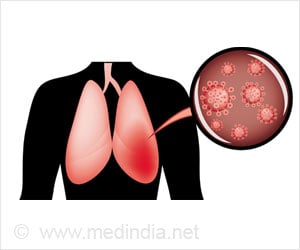Melanoma patients who don’t respond to immunotherapy show pro-inflammatory gut microbiota that damages the intestinal barrier. The gut-on-chip could help identify non-responders early.

A gut-on-a-chip incorporating human faecal samples and peristalsis predicts responses to immune checkpoint inhibitors for melanoma
Go to source).
‘Immunotherapy interacts with gut microbiota both locally and systemically. This new gut-on-chip model helps understand its impact without invasive procedures. #guthealth #cancerresearch #medindia’





With all of its drawbacks, the latter can only be investigated in animal models. There is no medical justification for doing a colonoscopy and colon biopsy on a patient undergoing immunotherapy for melanoma. However, intestinal inflammation is one of the most common side effects of this treatment, frequently necessitating its discontinuation.New Gut-On-Chip Technology Mimics the Human Intestine
Hence the researchers' idea to apply “organ-on-chip” technology to the colon with innovative details specifically designed to focus on the link between gut microbiota and immunotherapy.The patented uBeat technology, owned by Politecnico di Milano, is the basis of our new gut-on-chip model. uBeat was originally developed to reproduce heart muscle contractions and later extended to simulate biomechanical conditions of the knee joint.
We have, instead, applied it to recreate the typical peristaltic bowel movement. The continuous movements generated by uBeat enable to differentiation of major intestinal populations from human organoids, thus reproducing a highly realistic environment on a chip.
The ability to drive such complex biological processes through engineering alone opens up very promising prospects, especially in the creation of humanised in vitro models intended to replace the use of animals in numerous fields, says Marco Rasponi.
Advertisement
Using Gut Microbiota to Improve Immunotherapy Effectiveness
The idea of studying the influence of gut microbiota on the response to immunotherapy in melanoma patients stems from my studies in the USA. Now, the partnership with Politecnico di Milano has enabled us to create this new device to conduct detailed studies on the molecular mechanisms through which the microbiota interact with the cells of the intestinal epithelium.This would result in an important benefit in terms of quality of life for patients, with considerable savings for the National Health System. In addition, the use of our gut-on-chip may spare therapy-resistant patients the risk of unnecessary side effects, allowing their oncologists to administer any therapies that predispose them to a better response.
To do this, we simply take a faecal sample and test its effects on our gut-on-chip. Finally, it must be said that we are using this system to study the molecular mechanisms involved in the response to immunotherapy in other cancers, where the benefits for patients are still marginal.
We aim to thus generate new development opportunities for innovative therapies based on modulation of the gut microbiota, to provide an increasing number of patients with access to effective treatments, says Luigi Nezi.
Reference:
- A gut-on-a-chip incorporating human faecal samples and peristalsis predicts responses to immune checkpoint inhibitors for melanoma- (https://www.nature.com/articles/s41551-024-01318-z)
Source-Eurekalert














